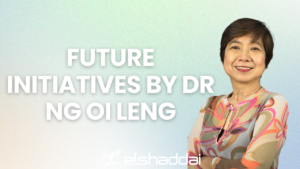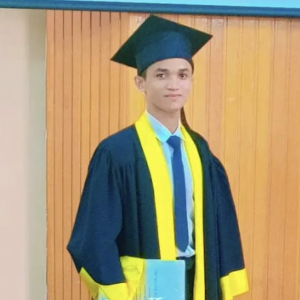As an educator based in Singapore, I was filled with anticipation and excitement as I embarked on a one-year research project based in ElShaddai Learning Centre, Klang.
Contrary to most refugee research that normally cast deficit perspectives on refugees, I decided to explore using an asset perspective through the concept of “Funds of Knowledge” (FoK) to support students’ English language learning. Rather than focusing on what the refugee students could not achieve, this concept focused on the rich knowledge, skills, and practices the students possessed.
The students (from Myanmar, Sri Lanka, and Pakistan), whom I observed and interviewed, showcased a rich treasure trove of interests and diverse skills such as trawling the Internet. Besides school, they engaged in a colourful range of activities with their network of friends and communities. Their values and beliefs were pretty much influenced by their parents and religions.
I was treated to the children’s flair of acting in Christmas plays and spectacular singing performances. Other children were avid readers who relished voraciously the books they could get their hands on, and some saw themselves as passionate and competitive soccer players who possessed discipline and determination.


The children’s tech-savviness was impressive as they effortlessly utilised different platforms like YouTube and Facebook to showcase their achievements, communicate with friends and families, and even learn English online. What’s more, the anecdotes and fables shared by their parents instilled moral values and valuable life lessons.
The children’s socio-emotional well-being was attributed to their religious beliefs and practices — to tie them through difficult times. Their aspirations, for example, various careers and the hope to move to a third country, fuelled their motivation to work towards their goals.
Reflecting on this research experience, I have three insights to share.
I am impressed by the resilience displayed by the refugee families. The families, with their own unique narrative of their move to Malaysia, have a common goal to build a better future.
Their heartfelt hospitality touched me deeply. Not only did they welcome me into their homes, but they shared their local delicacies with me as well. I felt very much at home with their offering of friendship.
Above all, these families are highly supportive of their children’s English language learning journey and are concerned about their children’s performance at school (just like any other parent). Kudos to ElShaddai for their mission to reach out to the marginalised communities, such as these refugee families, through education!
Editor’s note: Ivy, our social concern team volunteer from Singapore, shares about her experience volunteering with ElShaddai Centre.









